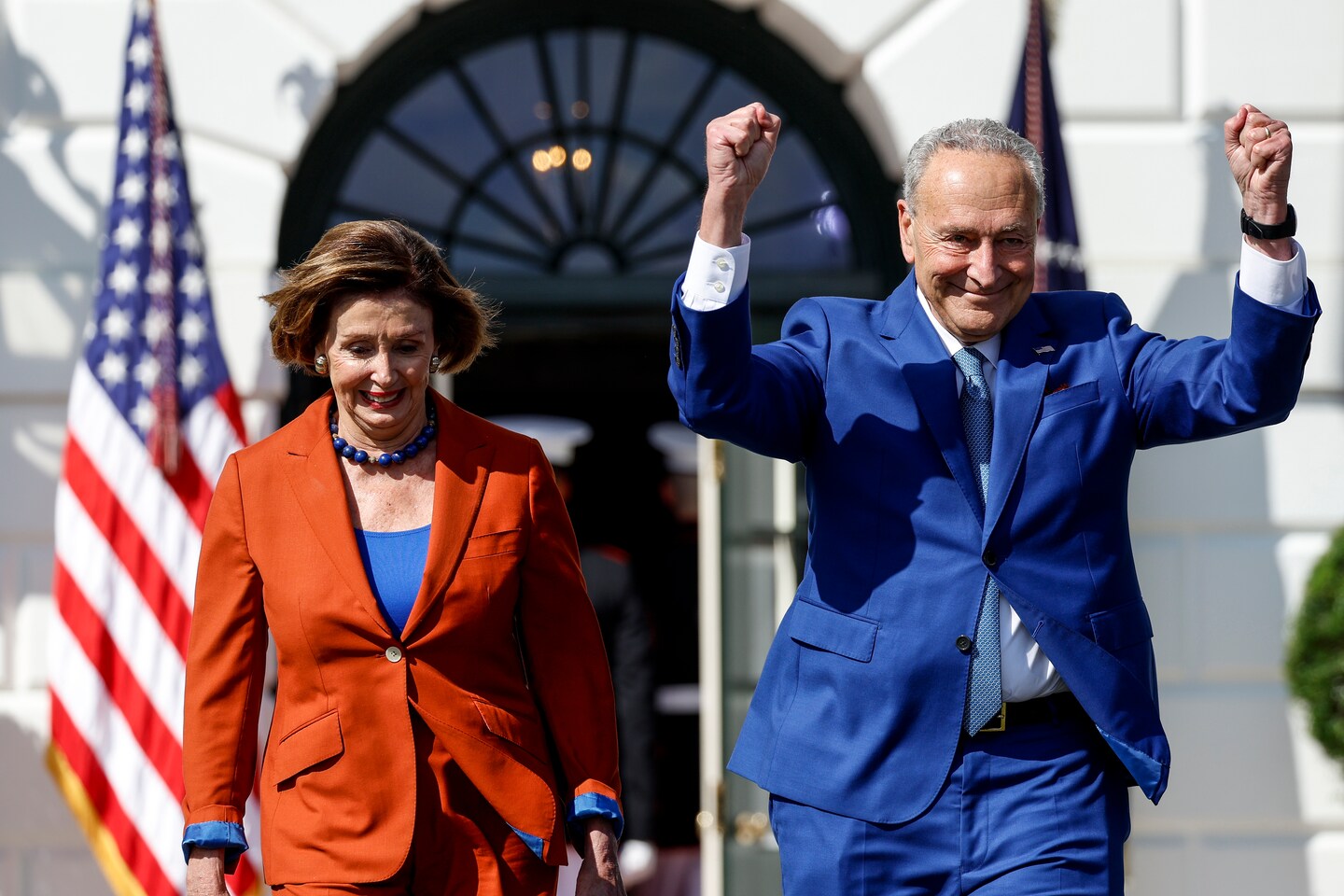Hours before President Biden gathered thousands of supporters at the White House to celebrate the Inflation Reduction Act, the Bureau of Labor Statistics kicked off the festivities early by issuing its monthly inflation report, which showed that inflation is, alas, very much still with us.
Both parties’ pet economic theories are kaput

These metrics indicate a stubbornly high general upward pressure on prices. And much of that pressure is due to Biden’s fiscal policies, which have seen the president approve more than $4 trillion in new borrowing during just 20 months in office. The Inflation Reduction Act has been his only serious attempt to get deficits under control, and he promptly undid even this modest effort by promising $500 billion in unfunded student loan forgiveness in late August, which will wipe out the savings from the IRA — twice over.
If the president wants to spare himself further such embarrassments, and his constituents further price hikes, he needs to stop fire hosing money into the economy. That won’t be easy, because both Democrats and Republicans think of deficit spending as free money with which to pursue their goals and reward their voters.
Follow Megan McArdle‘s opinions
FollowPolitically, deficit spending is a hard habit to kick. Democrats, in particular, have devoted the past 15 years to arguing that deficit spending isn’t just politically expedient (all politicians love spending borrowed money) but is a positive boon to the economy.
Some of those arguments were sound. I supported deficit-financed relief during both the Great Recession and the covid-19 pandemic, and not just because I wanted to mitigate the misery of people who lost jobs and businesses. Rapid economic contractions can feed on themselves, as panicked consumers hoard money against possible financial hardship and thereby trigger further waves of layoffs and business failures. Strategic injections of government deficit spending can theoretically slow, or even reverse, that downward spiral.
But those injections only cure the patient if there’s spare economic capacity waiting to be put back into service as soon as demand recovers. That’s no good to us now, because unemployment is below 4 percent, core inflation is above 6 percent and demand has already recovered. So, when the government (as it has under Biden) comes in with even more borrowed money, all that money can do is bid up the price of existing goods and services further.
Unfortunately, a lot of Democrats, including our president, are stuck in the economic mind-set of days past, when there was always economic slack that could theoretically be stimulated away, so that deficit spending of any amount seemed to be all upside. They have yet to adjust to the new reality of an economy where the problems are all on the supply side.
In this respect, they are coming to resemble mirror images of the Republicans who got trapped in Reaganite amber, never able to move beyond the tax-cut-and-deregulation agenda that had proved so popular in the 1980s. That was indeed a fine agenda for 1980, when unemployment was high and inflation higher, when a bevy of critical industries were stagnating behind regulatory moats, and when tax brackets that weren’t indexed for inflation were slowly squeezing the life out of the middle class. But that economy has changed — thanks in no small part to Reaganite reforms — while the Republican agenda didn’t.
Decades later, Republicans were still trying to sell tax cuts to a public that mostly paid negligible federal income taxes, and deregulation to voters who had just lived through a punishing financial crisis. Meanwhile, they neglected rising concerns, such as immigration and health care; it is telling that for all his claims to be a new kind of Republican, Donald Trump’s signature legislative achievement was yet another tax cut, while his ham-handed attempt to reform Obamacare went down in flames because congressional Republicans had never gotten around to figuring out what they wanted to replace it with.
Democrats were quick to point out, correctly, that this agenda was ill-suited to the problems of today. But they are now flirting with a similar disaster, only in reverse: They keep applying demand-side thinking to a world where those kinds of “solutions” can only make things worse — politically as well as economically. No Rose Garden ceremony or strategically named bill is going to distract voters from the reality of rising prices. Nor will they grow fonder of politicians who keep promising that everything will soon be better, while doing the same old thing.






